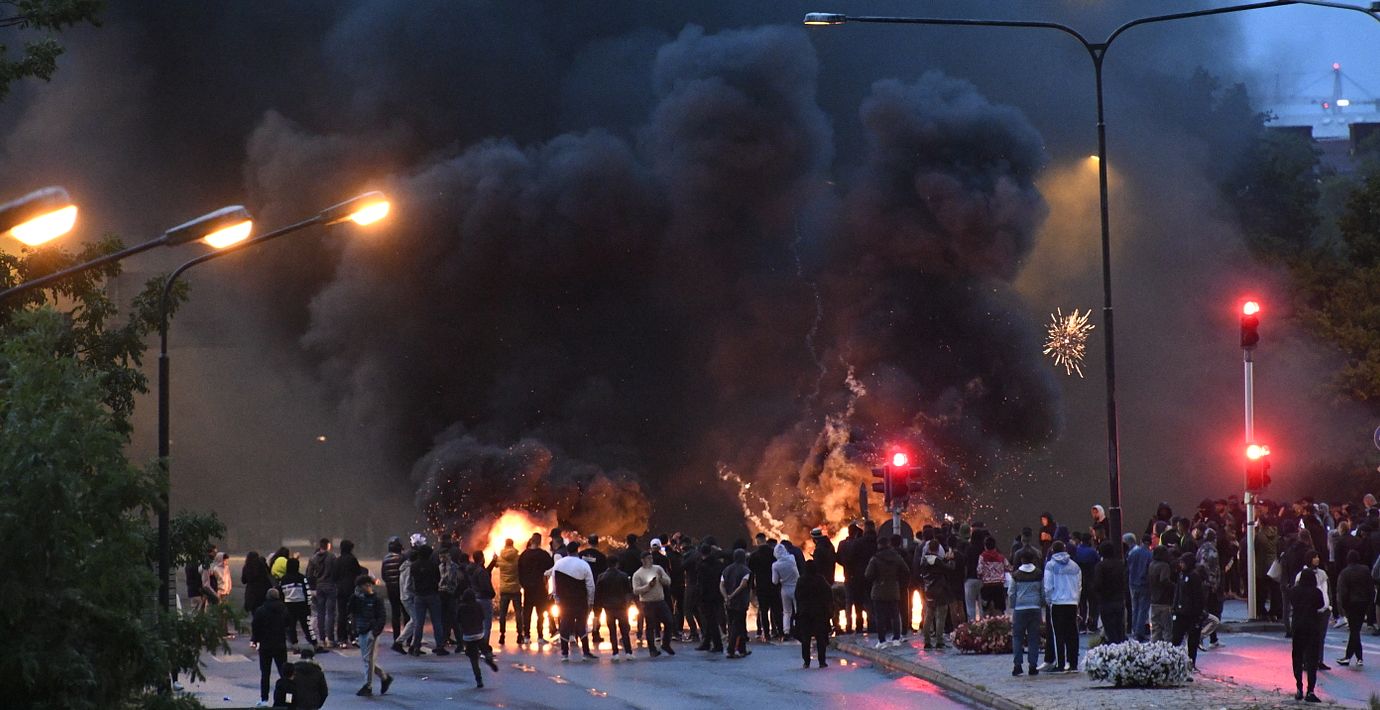
Polisen utreder klipp med antisemitisk ramsa
Malmöpolisen utreder ett klipp där personer skanderar en antisemitisk ramsa och som nu sprids på sociala medier, där klippet uppges ha koppling till upploppen i Rosengård.
– Vi ska titta på det. Vi vet att filmen cirkulerar på sociala medier, säger Malmöpolisens presstalesperson Ewa-Gun Westford till DN.
Ramsan refererar till slaget vid Khaybar där islams profet Muhammeds styrkor besegrade judar på den arabiska halvön på 600-talet. Polisen ska nu se om filmens äkthet går att identifiera.
bakgrund
Slaget vid Khaybar
Wikipedia (en)
The Battle of Khaybar (Arabic: غَزْوَة خَيْبَر) was fought in the year 628 between Muslims and the Jews living in the oasis of Khaybar, located 150 kilometers (93 mi) from Medina in the north-western part of the Arabian peninsula, in modern-day Saudi Arabia. According to Hagai Mazuz, "The Jewish community of northern Arabia was one of the largest ancient Jewish communities in the history of the Jewish people." For almost a thousand years Jews lived in the oases of Teyma, Khaybar, and Yathrib (later known as Medina), in the northern Arabian peninsula. According to Muslim sources, the Muslim soldiers attacked the native Jews who had barricaded themselves in forts.Muslim sources accuse Jews living in Khaybar of a plan to unite with other Jews from Banu Wadi Qurra, Taima', Fadak as well as Ghatafan Arab tribe to attack Madinah. Scottish historian William Montgomery Watt notes the presence in Khaybar of the Banu Nadir, who were working with neighboring Arab tribes to protect themselves from the Islamic community in Medina who had earlier sent into exile the Jewish tribes for violating the terms of the Charter of Medina and for conspiring to kill Muhammad. Italian orientalist Laura Veccia Vaglieri claims other motives might have included the prestige the engagement would confer upon Muhammad among his followers, as well as the booty which could be used to supplement future campaigns.The Jews of Khaybar finally surrendered after seeing no way out and were allowed to live in the oasis on the condition that they would give one-half of their produce to the Muslims. Jews continued to live in the oasis for several more years until they were expelled by caliph Umar. The imposition of tribute upon the conquered Jews served as a precedent for provisions in the Islamic law requiring the exaction of tribute known as jizya from Dhimmi subjects in areas under Muslim rule, and confiscation of land belonging to non-Muslims into the collective property of the Muslim community.
Omni är politiskt obundna och oberoende. Vi strävar efter att ge fler perspektiv på nyheterna. Har du frågor eller synpunkter kring vår rapportering? Kontakta redaktionen



